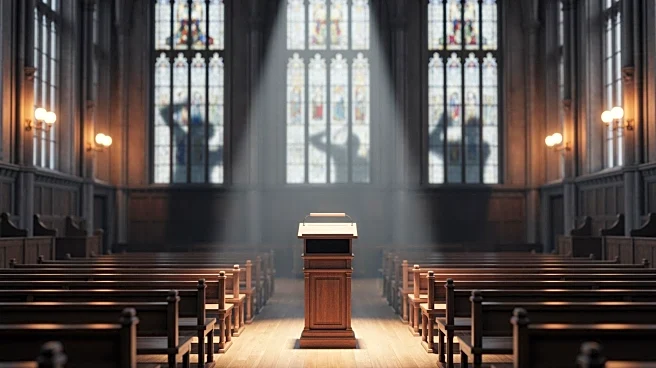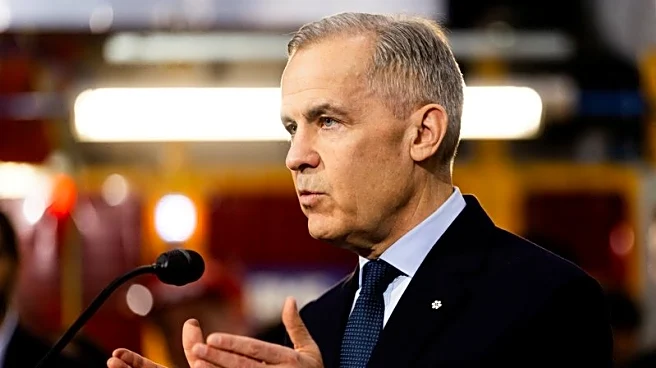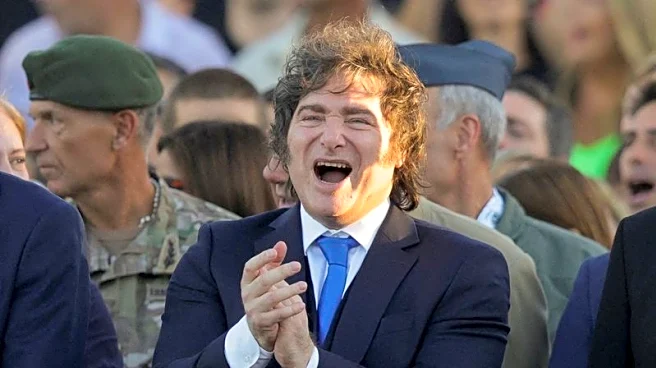What's Happening?
Former Israeli Prime Minister Ehud Olmert's speech at the Oxford Union was disrupted by approximately 60 protesters, leading to a delayed start and three arrests. The protest was organized by groups including
Oxford Schools 4 Palestine and Oxford Action 4 Palestine, who accused the Union of 'whitewashing genocide.' The demonstrators blocked the entrance and chanted slogans, while some climbed over a wall into the Union grounds. Inside the chamber, protesters with red-painted hands shouted 'shame' and 'lies,' prompting security to remove them. Olmert was invited to discuss diplomacy and Middle Eastern realities. The Union emphasized its commitment to free speech, stating that hosting speakers does not imply endorsement of their views.
Why It's Important?
The disruption of Ehud Olmert's speech highlights ongoing tensions surrounding Israeli-Palestinian relations and the broader Middle Eastern geopolitical landscape. The protest reflects strong opposition to Israeli policies and actions, particularly among pro-Palestinian groups. This incident underscores the challenges institutions face in balancing free speech with the sensitivities of controversial topics. The Oxford Union's decision to host Olmert, despite protests, demonstrates its dedication to providing a platform for diverse perspectives, which is crucial for fostering dialogue and understanding in academic settings.
What's Next?
The Oxford Union may continue to face scrutiny and protests as it hosts speakers with contentious backgrounds or views. The incident could prompt further discussions on the role of academic institutions in facilitating dialogue on sensitive issues. Stakeholders, including student groups and political organizations, may increase their advocacy efforts, potentially influencing future speaker selections and event policies. The Union's commitment to free speech will likely be tested as it navigates these challenges.
Beyond the Headlines
The protest against Olmert's speech at the Oxford Union reflects broader ethical and cultural debates about the representation of controversial figures in public forums. It raises questions about the responsibilities of institutions in addressing historical grievances and the impact of such events on community relations. The incident may contribute to ongoing discussions about the role of public discourse in reconciliation and peace-building efforts.












